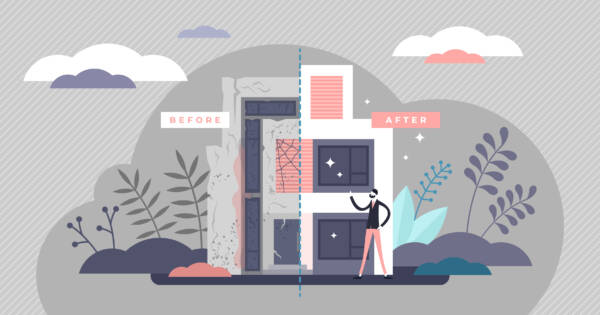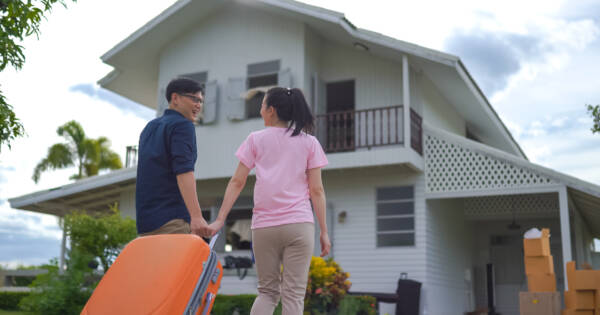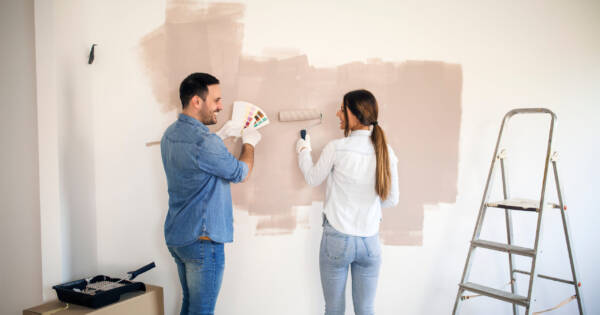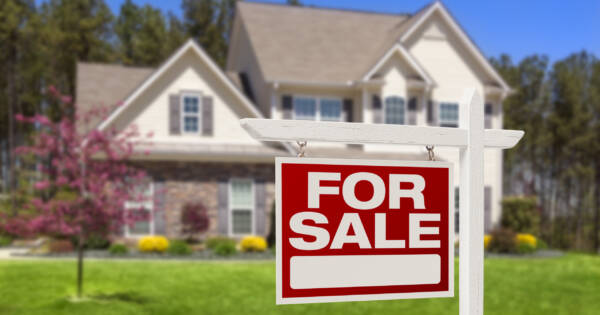The housing market is constantly evolving, and prefabricated homes are gaining traction as a popular alternative to traditional construction. Known for their efficiency, affordability, and customization options, prefab homes are becoming an increasingly attractive option for many homebuyers. But is a prefabricated home the right choice for you? Start a search today to explore the advantages and disadvantages of prefab homes.
Exploring the Basics of Prefabricated Homes
Factories build prefabricated homes, also known as modular or manufactured homes, in sections. A professional crew then transports these sections, or modules, to the construction site and assembles them.
Prefab homes can range in size and style, from small single-story houses to multi-story mansions. The entire construction process is typically faster and more efficient than traditional building methods, which can save both time and money.
Pros of Prefabricated Homes: Affordability and Efficiency
One of the most significant benefits of prefab homes is their affordability. Since the homes are constructed in a controlled factory environment, manufacturers can streamline the process, reduce waste, and ultimately lower costs. This efficiency translates to lower prices for buyers.
Constructing a prefab home typically ranges from $100 to $200 per square foot, excluding the price of land and any extra charges. In contrast, the cost of a traditionally built home tends to range from $150 to $400 per square foot. Naturally, such an affordable housing alternative will be attractive for those on a budget or looking for a more cost-effective way to build a custom home.
Additionally, the factory setting allows for a higher level of quality control, ensuring that the construction adheres to strict standards. This results in a well-built home with fewer chances of defects or structural issues down the line.
Pros of Prefabricated Homes: Customization and Flexibility
Prefab homes are highly customizable, as buyers can choose from a wide range of floor plans, designs, and features. This flexibility allows you to create a home that reflects your unique style and meets your specific needs. Moreover, should you decide to expand your living space in the future, it is relatively easy to add new modules to an existing prefabricated home.
Another advantage of prefab homes is their adaptability to various types of land. Builders design the modules off-site and assemble them on location, allowing for accommodation of different terrain or lot sizes. This flexibility makes prefab homes a viable option for those with unique or challenging property conditions.
Cons of Prefabricated Homes: Financing and Perception
Despite the many advantages of prefab homes, there are also some drawbacks to consider.
One challenge is obtaining financing, as some lenders may be hesitant to provide loans for prefabricated homes. This can be due to the misconception that prefab homes are of lesser quality than traditional stick-built homes, even though modern manufacturing techniques have largely debunked this myth. To secure financing, you may need to shop around for a lender that understands and supports prefab construction.
Sometimes, prefabricated homes face a stigma as being low-quality and temporary, despite being mistaken. This perception may impact resale value, making it potentially more challenging to sell your home later on. However, as prefab homes continue to gain popularity, it is likely that this perception will shift over time.
Cons of Prefabricated Homes: Limitations in Design and Aesthetic
While prefab homes are highly customizable, there may be limitations in terms of design and aesthetic choices. Some prefab home manufacturers may have a limited selection of styles, finishes, or architectural features, which could restrict your ability to achieve a specific look or feel.
Additionally, local building codes and regulations may impose restrictions on the types of prefab homes that can be built in certain areas. Be sure to research these requirements before committing to a prefab home to ensure that your chosen design will comply with local regulations.
Best Prefabricated Home Manufacturers
Method Homes: Focused on creating sustainable, prefabricated homes, Method Homes chooses eco-friendly materials and construction techniques. These highly efficient homes come in a variety of designs and can be customized to meet the specific needs and preferences of the homeowner.
Deer Valley Homebuilders: This American company offers a wide range of home designs to choose from, including single-wide and double-wide homes, as well as custom homes. They build their homes in a controlled environment to be energy-efficient and long-lasting.
Champion Homes: Champion Homes is a leading manufacturer of prefabricated homes in the United States. Using the latest building techniques and materials, they create homes that are energy-efficient and built to last.
Making the Best Decision for Your Housing Needs
As the housing market continues to evolve, it’s crucial to remain open-minded. Exploring all available options – including prefab homes – could help you find the perfect solution for your next living space. Research various manufacturers to find one that aligns with your desired design, quality, and price range. Also, investigate local building codes and regulations to ensure your prefab home can be built in your preferred location.
Ultimately, whether a prefabricated home is the right option for you depends on your unique circumstances, priorities, and preferences. By conducting thorough research, you can decide whether prefab homes are right for you and create the home of your dreams.
 Shutterstock: Augenstern
Shutterstock: Augenstern







